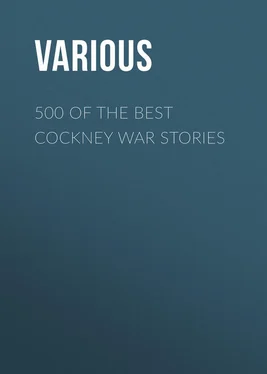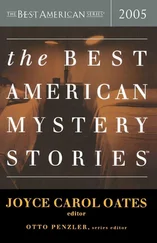Various - 500 of the Best Cockney War Stories
Здесь есть возможность читать онлайн «Various - 500 of the Best Cockney War Stories» — ознакомительный отрывок электронной книги совершенно бесплатно, а после прочтения отрывка купить полную версию. В некоторых случаях можно слушать аудио, скачать через торрент в формате fb2 и присутствует краткое содержание. Жанр: periodic, История, foreign_edu, prose_military, на английском языке. Описание произведения, (предисловие) а так же отзывы посетителей доступны на портале библиотеки ЛибКат.
- Название:500 of the Best Cockney War Stories
- Автор:
- Жанр:
- Год:неизвестен
- ISBN:нет данных
- Рейтинг книги:5 / 5. Голосов: 1
-
Избранное:Добавить в избранное
- Отзывы:
-
Ваша оценка:
- 100
- 1
- 2
- 3
- 4
- 5
500 of the Best Cockney War Stories: краткое содержание, описание и аннотация
Предлагаем к чтению аннотацию, описание, краткое содержание или предисловие (зависит от того, что написал сам автор книги «500 of the Best Cockney War Stories»). Если вы не нашли необходимую информацию о книге — напишите в комментариях, мы постараемся отыскать её.
500 of the Best Cockney War Stories — читать онлайн ознакомительный отрывок
Ниже представлен текст книги, разбитый по страницам. Система сохранения места последней прочитанной страницы, позволяет с удобством читать онлайн бесплатно книгу «500 of the Best Cockney War Stories», без необходимости каждый раз заново искать на чём Вы остановились. Поставьте закладку, и сможете в любой момент перейти на страницу, на которой закончили чтение.
Интервал:
Закладка:
I often wonder if any other battalion had the "honour" of "attacking the enemy" clad only in tin hats. — G. M. Rampton (late 12th London Regt., "Rangers"), 43 Cromwell Road, Winchester.
Scene, Ypres, May 1915. The battalion to which I belonged had been heavily shelled for many hours, and among the casualties was "Topper" Brown, a Cockney, who was always in trouble for losing items of his kit. Taken to the dressing station to have a badly shattered foot amputated, he recovered consciousness to find the C.Q.M.S. standing by the stretcher on which he lay.
The C.Q.M.S., not knowing the extent of Brown's injury, inquired, "What's the trouble, Brown?"
In a weak voice the Cockney replied, "Lost one boot and one sock again, Quarter." — E. E. Daniels (late K.R.R.), 178 Caledonian Road, N.1.
We were in the line at Neuville St. Vaast in 1916. A raid had just been carried out. In the party were two inseparable chums, one from Bow and one from Harrow. (Of course they were known as Bow and Arrow.)
The bulk of the raiders had returned, but some were yet to come in. Some time later three forms were seen crawling towards our line. They were promptly helped in.
As their faces were blackened they were hard to recognise, and a corporal asked them who they were.
"Don't yer know us?" said the chap from Bow. "We're Bow and Arrow." "Blimey!" said another Cockney standing by. "And I suppose the other bloke's Robin 'ood, aint 'e." — G. Holloway (late London Regt. and 180 M.G.C.), 179 Lewis Buildings, West Kensington, W.14.
Towards the end of September 1918 I was one of a party of nine men and an officer taking part in a silent raid in the Ypres sector, a little in front of the well-known spot called Swan and Edgar's Corner. The raid was the outcome of an order from Headquarters demanding prisoners for information.
Everything had been nicely arranged. We were to approach the German line by stealth, surprise an outpost, and get back quickly to our own trenches with the prisoners.
Owing perhaps to the wretchedness of the night – it was pouring with rain, and intensely black – things did not work according to plan. Instead of reaching our objective, our party became divided, and the group that I was with got hopelessly lost. There were five of us, including "Ginger," a Cockney.
We trod warily for about an hour, when we suddenly came up against a barbed-wire entanglement, in the centre of which we could just make out the figure of a solitary German. After whispered consultation, we decided to take him prisoner, knowing that the German, having been stationary, had not lost sense of direction and could guide us back to our line. Noiselessly surmounting the barbed wire, we crept up to him and in a second Ginger was on him. Pointing his bayonet in Fritz's back, he said, "Nah, then, you blighter, show us the way 'ome."
Very coolly and without the slightest trace of fear, the German replied in perfect English, "I suppose you mean me to lead you to the British trenches."
"Oh!" said Ginger, "so yer speak English, do yer?"
"Yes," said the German, "I was a waiter at a restaurant in Piccadilly before the War."
"Piccadilly, eh? You're just the feller we want. Take us as far as Swan and Edgar's Corner." — R. Allen (late Middlesex Regt., 41st Division), 7 Moreland Street, Finsbury Park, N.4.
On a bitterly cold night, with a thick fog settling, the Middlesex Regt. set out on a raid on a large scale on the enemy's trenches. Fritz must have got wind of it, for when they were about half-way across the enemy guns opened fire and simply raked No Man's Land. The air was alive with shrapnel and nearly two-thirds of the raiders were casualties in no time.
Those that could tried to crawl back to our lines, but soon lost all direction in the fog. About half a dozen of them crawled into a shell-hole and lay there wounded or exhausted from their efforts, and afraid to move while the bombardment continued.
Meanwhile "Wag" Bennett, a Cockney, though badly wounded, had dragged himself out of a shell-hole, and was crawling towards what proved later to be the enemy lines when he saw the forms of the other fellows in the darkness. As he peered down upon them he called out, "Strike me pink! Lyin' abaht dahn there as if you was at the 'Otel Cissle, while there's a ruddy war agoin' on. Come on up aht of it, else you'll git us all a bad name."
In a moment they were heartened, and they crawled out, following "Wag" on their hands and knees and eventually regained our lines. Poor "Wag" died soon afterwards from his wounds. — H. Newing, 1 Park Cottages, Straightsmouth, Greenwich, S.E.10.
Our company of the Middlesex Regiment had captured a hill from Johnny Turk one evening, and at once prepared for the counter-attack on the morrow. My platoon was busy making a trench. On the parapet we placed large stones instead of sandbags.
During these operations we were greeted with machine-gun fire from Johnny and, our numbers being small, we had to keep firing from different positions so as to give the impression that we were stronger than we really were.
It was while we were scrambling from one position to another that "Smudger" Smith, from Hammersmith, said: "Love us, Sarge, 'ow's this for a blinkin' game of draughts?" The words were hardly out of his mouth when Johnny dropped a 5·9 about thirty yards away. The force of the explosion shook one of the stones from the parapet right on to "Smudger's" head, and he was knocked out.
When he came round his first words were: "Blimey, they must 'ave 'eard me to crown me like that." — W. R. Mills (late Sergt., 2/10th Middlesex Regt.), 15 Canterbury Road, Colchester, Essex.
Two Cockney pals who were always trying to get the better of one another in a battle of words by greeting each other with such remarks as "Ain't you blinkin' well dead yet?" earned for themselves the nick-names of Bill and Coo.
One evening they were sent to fetch water, and on the return journey the Germans started to shell rather heavily.
Coo ran more quickly than Bill and fell into a shell-hole. He scrambled out in time to see his pal blown sky high by what appeared to be a direct hit.
Coo was heard to remark: "I always told 'im 'e ought to be reported missing, and blimey if 'e ain't."
He then went to see if he could find the body: instead he found Bill alive, though badly wounded.
When finally Coo got his pal back to the trench, Bill opened his eyes. Seeing Coo bending over him, he said: "Lumme, I thought peace 'ad come at last, but it ain't – not wiv you 'ere." — William Walker, 30 Park Road, Stopsley Road, Luton, Beds.
We were billeted in the vaults of Ypres Post Office. Towards dusk of a summer's day in 1916 four of us were lounging at the top of the vault stairs, discussing the noise made by different shells. Jerry, a Cockney, was saying, "Yes, yer can always tell big 'uns – they shuffles," and went on to demonstrate with Shsh-shsh-shsh , when someone said "Listen!"
There was the real sound, and coming straight for us. We dived or fell to the bottom of the stairs. Followed a terrific "crump" right in the entrance, which was completely blocked up.
Every candle and lamp was blown out; we were choking with dust and showered with bricks and masonry.
There was a short silence, and Jerry's voice from the darkness said, "There y'are; wot did I tell yer?" — H. W. Lake, London.
During the battle of Gaza in April 1917 camels were used for the conveyance of wounded. Each camel carried a stretcher on either side of its hump. Travelling in this manner was something akin to a rough Channel crossing.
Читать дальшеИнтервал:
Закладка:
Похожие книги на «500 of the Best Cockney War Stories»
Представляем Вашему вниманию похожие книги на «500 of the Best Cockney War Stories» списком для выбора. Мы отобрали схожую по названию и смыслу литературу в надежде предоставить читателям больше вариантов отыскать новые, интересные, ещё непрочитанные произведения.
Обсуждение, отзывы о книге «500 of the Best Cockney War Stories» и просто собственные мнения читателей. Оставьте ваши комментарии, напишите, что Вы думаете о произведении, его смысле или главных героях. Укажите что конкретно понравилось, а что нет, и почему Вы так считаете.












